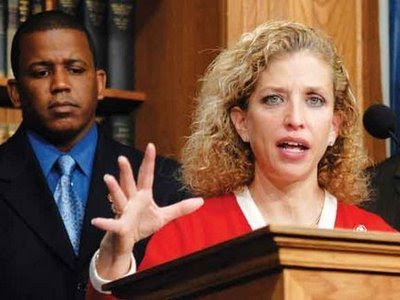Excepts from an Op Ed by Tom, Coburn (R-Oklahoma), @ CNN.com.
Every year, politicians on both sides engage in a process of reverse Robin Hood in which they steal $30 billion from low- and middle-income Americans and provide handouts to the rich and famous.
Millionaires receive tax earmarks and deductions crafted by both parties that allow them to write off billions each year. These write-offs include mortgage interest deductions on second homes and luxury yachts, gambling losses, business expenses, electric vehicle credits and even child care tax credits.
Meanwhile, direct handouts for millionaires have included $74 million in unemployment checks, $316 million in farm subsidies, $http://www.blogger.com/img/blank.gif89 million for preservation of ranches and estates, $9 billion in retirement checks and $7.5 million to compensate for damages caused by emergencies to property that should have been insured. Millionaires have even borrowed $16 million in government-backed education loans to attend college since 2007.
The goal of highlighting these excesses is not to demonize those who are successful. Instead, by highlighting the sheer stupidity of pampering the wealthy with lavish benefits through our safety net and tax code, I hope to make a moral and economic argument for real entitlement and tax reform...
Families are struggling to make ends meet and are making painful economic choices as politicians in Washington borrow billions to provide welfare to the wealthy. Politicians on both sides refuse to fix big problems and defend stupid policies because changing those policies would involve upending a comfortable political status quo.
It's important for taxpayers to understand that these distortions are not accidental loopholes in the law. To the contrary, these provisions are intentional efforts to get all Americans to buy into a system where everyone appears to benefit while the poor and middle class are being robbed.
In the case of entitlements such as Social Security, progressives have argued for decades that a program for poor people will be a poor program. Yet, Warren Buffett hardly needs the same retirement check as his secretary. Ending welfare handouts to millionaires will strengthen, not undermine, the safety net for people who need it most.
Even Canada has adopted means testing in its retirement program by limiting benefits for high-earners. That fact is we can't afford the system we have today. Only by adopting common-sense reforms can we sustain a safety net for those who truly need assistance.
On the tax side, both parties have been reluctant to alter tax earmarks and deductions, such as the mortgage interest deduction. These are considered sacrosanct.
Yet, it's hard to understand how limiting the mortgage interest deductions for yachts will hurt working families. Defending spending in the tax code is not conservative. Providing tax earmarks and deductions to millionaires is a tax increase on everyone who doesn't receive the benefit. The only way we will enact real tax reform, and grow the economy, is by lowering tax rates and broadening the base by scaling back these egregious handouts. This is precisely what President Ronald Reagan did in 1986.
Even though the super committee failed to reach an agreement on broad deficit reduction, there is no reason why the other super committee -- Congress -- should drag its feet. Change in Washington tends to start with small steps. There is no better place to start than scaling back ludicrous handouts to millionaires that expose an entitlement system and tax code that desperately need to be reformed.
Read the complete Op Ed by Tom, Coburn (R-Oklahoma), @ CNN.com.


